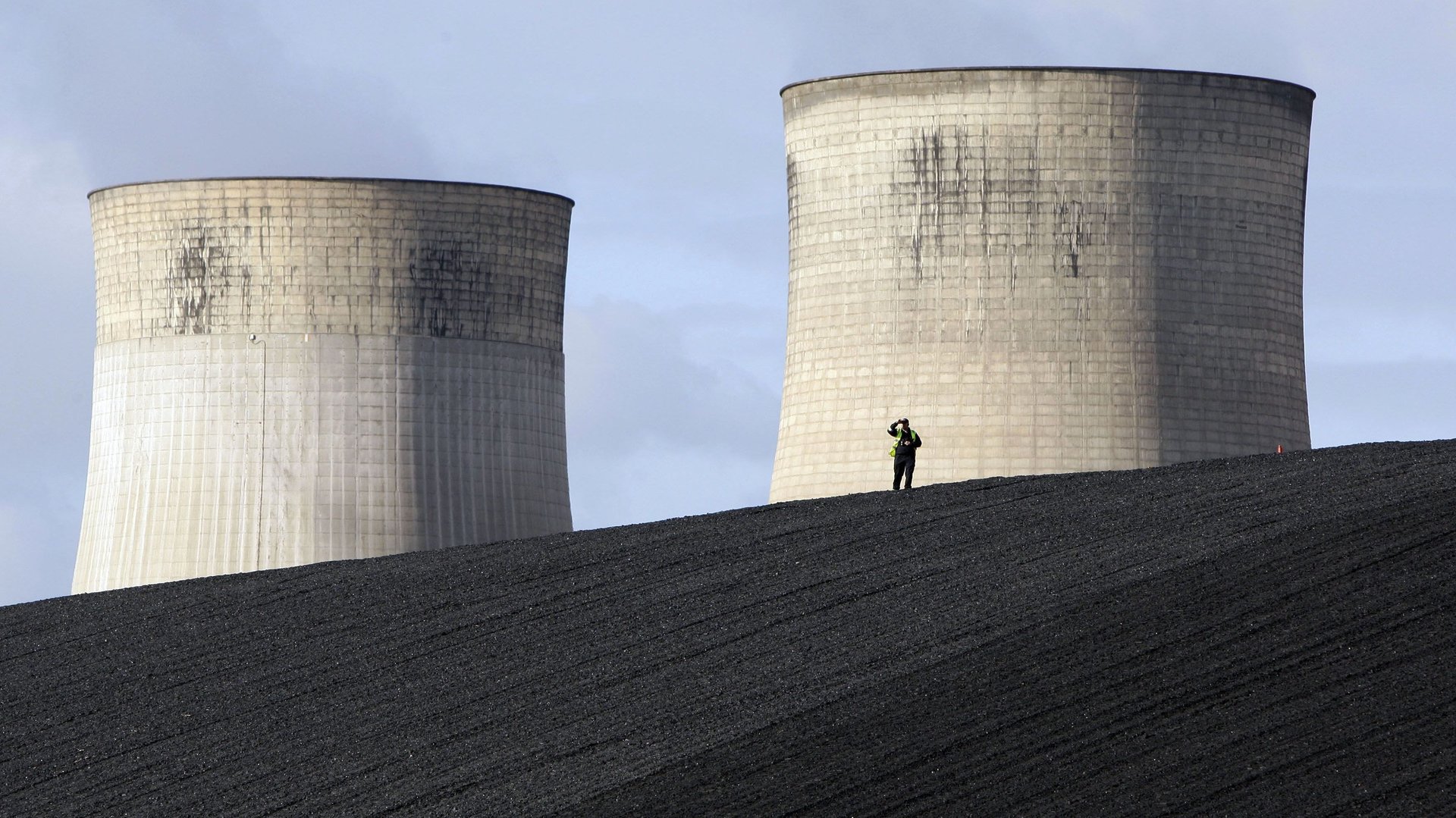The UK could have changed the way the world fights global warming. Instead it blew $200 million.
The UK’s public accounts committee doesn’t mince words. In a report published on Friday (Apr. 28), it slammed the UK government for spending £168 million ($225 million) ostensibly on kickstarting a technology to reduce greenhouse-gas emissions and having nothing to show for it.


The UK’s public accounts committee doesn’t mince words. In a report published on Friday (Apr. 28), it slammed the UK government for spending £168 million ($225 million) ostensibly on kickstarting a technology to reduce greenhouse-gas emissions and having nothing to show for it.
The members of parliament that make up the public accounts committee were scrutinizing carbon capture and storage (CCS), which the government considers vital to fulfill the UK’s commitment to cut emissions. The technology enables fossil-fuel power plants to bury carbon dioxide safely in underground reservoirs instead of putting it into the air.
“Without CCS, there is a gap in the government’s plans for achieving decarbonization at least cost while ensuring a secure supply of electricity,” the report said. “It is now highly likely the UK will have to pay billions more to meet its targets.”
Ready… Set… No!
Experts in climate change and energy security agree that deployment of carbon-capture technology is necessary, especially if countries are to live up to the goals set in the Paris climate agreement. CCS needs to bury about 10% of all global carbon-dioxide emissions expected between now and 2050—about 94 billion metric tons—according to a 2016 report (pdf, page 9) from the International Energy Agency.
The first commercial project to use carbon-capture technology has been in operation in the US since 1972, and currently there are more than 15 large-scale projects in countries like Norway, Canada, Australia, Brazil, Saudi Arabia, United Arab Emirates, and Brazil. Together they capture about 40 million metric tons of carbon dioxide a year, or about 0.1% of the world’s current annual emissions.
The gap between current CCS and the huge target means there’s a lot of room for the industry to grow, and the UK has been working for nearly a decade to try to set the country up to get a big piece of that pie. As a first step, in 2007, the government launched a competition to find the cheapest bidder to build two commercial-scale plants.
Though carbon capture has been around for many decades, it remains expensive because projects have a large upfront cost. Unlike windmills or solar panels, which can be added whenever money is available, carbon-capture units have to built on a large scale right at the beginning to make the operation economical. The work of UK academics had shown that, with some government support to pad out financial risks, CCS projects could become attractive for private companies. And once private companies enter the market, research innovation could help bring operational costs down. The competition was meant to kickstart this sort of public-private partnership.
Cold feet
But the government canceled the competition in 2011 because it could not find a private bidder who would work for the money being offered. Still, in the interim the government had passed the 2008 Climate Change Act that legally mandated a drastic reduction in greenhouse-gas emissions in the UK (by 2050, the country could emit only 20% of its 1990 number). This made CCS became even more important to the country’s transition.
So the UK launched a second competition in 2012; the winners would get £1 billion. Two of the eight proposed CCS projects were shortlisted, and considered technically viable. One of the projects was even awarded a separate €300 million EU grant. In 2015, when the final bids were submitted, the government got cold feet and canceled the competition once again.
Bureaucrats told the public accounts committee that the competition got the axe because the Conservative government was looking to cut public spending as part of its austerity drive. “It did reflect political decisions,” a representative of the department of business told the committee. “The Prime Minister at the time did actually say that ‘Carbon capture and storage is £1 billion of capital expenditure—£1 billion that we could spend on flood defenses, schools, or the health service.’”
Along the way, though, the government spent £168 million on the endeavor: £100 million went to the second competition alone—for example, £81 million was paid to the two shortlisted projects for early engineering designs. The government thinks that its investment hasn’t been a total waste. It told the public account committee that CCS remains a vital part of the energy transition, and it plans to draw up a new strategy before the end of the year that will incorporate CCS more closely into government’s energy models. It also believes that lessons learned from the second competition will further help the government when CCS needs to be deployed in the future.
The committee is not so sure. “The UK has now missed opportunities to be at the forefront of a growing global industry,” the report concluded. “Establishing CCS is now likely to cost taxpayers more in the future because of the damage to investors’ confidence caused by aborting two competitions.”
The report chastens the departments of business and energy for not thinking long-term. In it, the public accounts committee argues that, though the UK got into the CCS game early with its competitions, canceling them twice means it’s likely to have lost the early-mover advantage. Instead, countries like China are now ready to heavily invest in the development and are thus likely to get many of the jobs that come with creating a new industry.